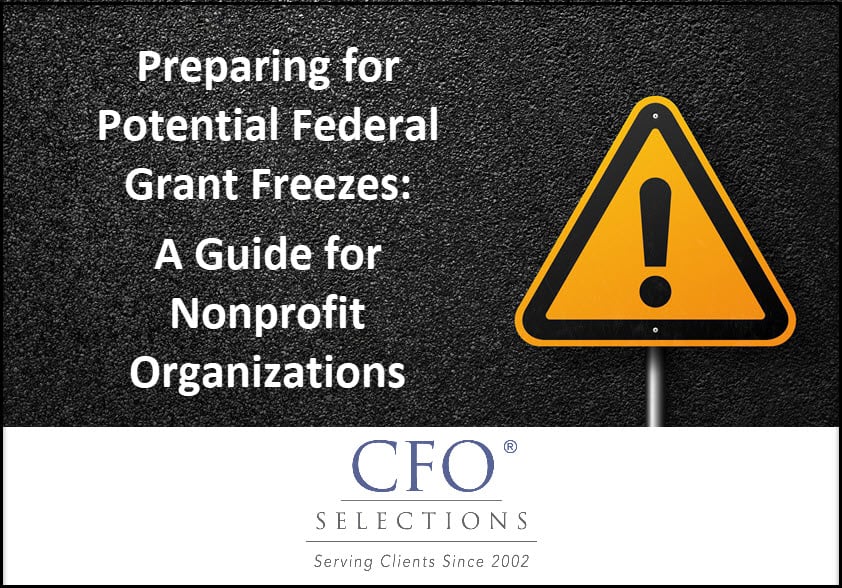With the recent issuance of OMB (Office of Management and Budget) Memorandum M-25-13 calling for the pausing of financial assistance for programs and activities implicated by the President’s DEI-focused Executive Order (E.O. 14151), many nonprofits are trying to evaluate the financial impact that may result. While all of this may end up in court, or require additional legislative action, nonprofit organizations that rely on federal funding would be wise to take proactive steps now to assess and mitigate potential risks that these kinds of policies could create in the coming weeks and months. To safeguard operations in response, organizations should follow these key steps as soon as possible:










